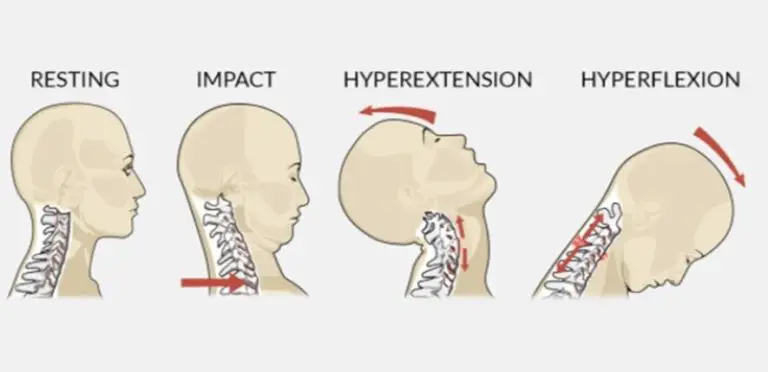Morning Boost: Unleash the Power of Running Before Breakfast
Running before breakfast is a brilliant form of aerobic physical activity. It is considered a convenient, diverse exercise that can be tailored according to your goals and lifestyle.
Moreover, a regular routine for running can alleviate your risk of having a chronic disease.
There are some people who would want to run on an empty stomach in the morning. They usually do it in the early morning hours after at least six hours of overnight fasting. It is sometimes termed as fasted training or fasted running. It is important to find out the benefits of running before breakfast so that when you are doing the activity, you know what you are expecting.
The Power of Pre-Breakfast Runs: Unveiling the Top Benefits


Revamp Your Metabolism: The Benefits of Early morning sprint
Your body runs on the metabolism of using glucose as the main energy source for energy. When you eat breakfast, your body gets its energy from glucose. The excess energy gets stored in the form of fats in your body. On the other hand, when your body is running low on glucose, your glycogen levels in the body get low. This increases the breakdown of fat in the body, which is called lipolysis. What you see is an accelerated fat-burning process. This is all possible because of a shift in the body’s metabolism.
Studies say that running before eating comes with many potential benefits that come with time.
Accelerated Fat Loss: How Running Before Breakfast Ignites Your Metabolism
Running is most known to have an accelerated effect on the fat burn, as discussed. Not only the speed increases, but the overall ability also magnifies. The higher fat burn or the oxidation results due to the fact when carbohydrate stores in the body are low. This is only possible when a person is deprived of breakfast in the morning hours.
In a study from 2015, 10 male subjects participated in a study where the ability of exercise was observed. It was found that exercise improved the process of oxidation over the course of a day. It works only when the workout was done prior to breakfast. This was among the benefits of running before breakfast that they found.
Enhancing Your Genetic Potential: How Running Before Breakfast Makes a Difference
Similar interests were highlighted in a pilot study in 2017 when nine women participants. According to scientists, this thing takes place because of the response of the body. The body is responding against the falling levels of carbohydrates in the body. The deficit of carbohydrates stimulates the genes that are responsible for the process of fat oxidation.
The research shows some reservations, though. A year later, it was found that fasting induced less fat burn after a workout than a workout happening after taking carbs or proteins. A 2020 review did not find any solid association between the fasted endurance running and elevated fat oxidation. Therefore, there is a need for more extensive study in the field.
Elevated Energy Levels: The Impact of Sunrise workout
If you want to lose weight, fasted exercise might help to control your energy intake. A small 2016 study showed 12 male subjects running on an empty stomach to be consuming less energy over the course of 24 hours. Another study in 2019 with 12 male subjects showed that fasted exercise lowered the energy intake over 24 hours. The researchers associated this with the liver, which stores glycogen.
The body taps into the liver glycogen stores as the muscle and the blood glycogen levels get depleted. It affects your energy intake through your neural network of the liver and the brain. This is one of the many reasons why one might consider running before eating to be beneficial in a lot of different ways.
Enhanced Endurance: How Pre-dawn Run Elevates Your Performance
There is some proof that suggests that running before eating breakfast might help you increase your aerobic endurance. In a pilot study of 2010, fasted exercise was linked with higher VO2 maximum levels. VO2 maximum level refers to the optimum oxygen uptake levels during intensive physical activity levels. It is regarded as a measurement of aerobic endurance and your overall fitness levels. However, there is a need for more extensive research as the study contained only 14 participants.
Say Goodbye to Digestive Discomfort
During prolonged periods of exercise, it is usual to experience digestive problems such as stomach or intestinal cramps. The symptoms often impact athletes who run long distances or who run for long hours or train for long distances. If you are prone to digestive issues that are induced by exercise, then running before breakfast would be the perfect option for you.
Research Insights: Exploring the Impact of Running on an empty stomach
A recent study conducted by researchers in Australia found that only after a limited span of three days, a diet high in calories and high in fat can lead to an increase in insulin resistance and blood sugar levels. This may increase the risk of the development of Type 2 Diabetes. Waistlines might also be expanded in some individuals, which can prompt feelings of low self-esteem. So, running before eating might be of some help.
Running or bicycling before breakfast can help significantly lessen the ill effects of prolonged holidays in individuals who may gain extra pounds of fat.
Closing Thoughts
These are some of the benefits of running on an empty stomach. As you can see, there are certain factors that help you achieve the goals of weight loss through running on an empty stomach which includes a shift in energy metabolism, increase in the body’s metabolism, fat burn, better genetic impact, alleviated energy intake, improved aerobic endurance, lesser digestive problems, and many more. The body becomes able to get better at resolving energy metabolisms related to fat burn, and therefore, we can say that a Pre-breakfast jog is helpful in a lot of cases.
Frequently Asked Questions (FAQs)
What are the benefits of Jogging prior to a morning meal?
The benefits of running before eating are quite many to discuss – for example, you can see improved aerobic endurance, decreased digestive problems, fast fat burn, and much more. In short, if you think you have digestive problems that get in the way of a good workout in the morning or if you think you can improve your fat-burning speed in the workouts you do, running before eating is a good idea for you.
Can I run on an empty stomach?
You can definitely run on an empty stomach without worrying much about your blood glucose levels falling down the safe scale. As long as your blood glucose levels are above 70 mg/dL, it is safe to run some distance when you are on an empty stomach. Unless you are diagnosed with a chronic condition such as diabetes Type 2, there is no way you have to avoid running on an empty stomach whatsoever. Unless your doctor tells you otherwise, it is totally fine to do so.
Can I improve my stomach problems by fast training?
You can improve your stomach problems by fast training. This is especially important when you are experiencing stomach upset such as diarrhea, nausea, and stomach acidity as you consume a heavy breakfast rich in carbohydrates or fats. Working out after taking macronutrients like that can make the problem worse. So, the best solution here is to limit the consumption of meals before a workout. You can go for a run before breakfast consumption, so there are lessened chances of stomach upset.
How does fasted training help in burning fat?
Fasted training helps in burning fat by the simple fact of enhancing the metabolism process in the body. When you are in the fasting state, the fat-burning process gets faster as the body needs to find ways to find maximum energy from its reserves. When the food is not there to provide the required energy, you need to get the energy compensated from the fat already stored in your body.
Do I need to wake up early for fast training?
Yes, it is recommended that you wake up early to do fast training. It is because, after a fasting time of 8 hours, your body is at a deficit of energy which requires you to do your activities in the least amount of time. If you put too much gap in the fasting duration and then decide to do some exercise, your body would face an extra burden on its metabolism. Therefore, it is suggested that you wake up in the early hours of the day and do your physical activities such as running or fast training in that duration.
Why do I need to talk to avoid fast training if I have diabetes?
In diabetes, it is common to have hyperglycemia or elevated blood glucose levels in the morning when you wake up. If you try doing vigorous physical activity such as running, in this case, your symptoms might get aggravated, which is dangerous. You could also enter into a state of rebound hypoglycemia that could make you faint during fasted training.
Should I eat anything before running in the morning?
It is generally recommended to run on an empty stomach in the morning. However, if you feel low on energy, having a light snack like a banana or a handful of nuts before the run can be beneficial.
How long should I wait after waking up before going for a run?
It is recommended to wait at least 30 minutes to an hour after waking up before going for a run. This allows your body to fully awaken and prepare for physical activity.








[…] you think of running at night vs morning, the morning is often the hardest for those that don’t like getting up early. However, if you […]